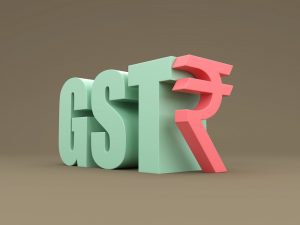 The Confederation of All India Traders (CAIT) has demanded the immediate imposition of a 28% Goods and Services Tax (GST) on e-commerce and quick commerce deliveries, arguing that such convenience should be treated as a luxury and taxed accordingly.
The Confederation of All India Traders (CAIT) has demanded the immediate imposition of a 28% Goods and Services Tax (GST) on e-commerce and quick commerce deliveries, arguing that such convenience should be treated as a luxury and taxed accordingly.
The demand was part of a series of resolutions adopted at CAIT’s two-day National Governing Council meeting held in Bhubaneswar on April 25–26, attended by over 200 prominent trade leaders from 26 states across India.
In a strong message to policymakers, CAIT accused e-commerce and quick commerce companies of “continuously violating rules and laws, selling counterfeit products, and conspiring to destroy the businesses of small traders.” The traders’ body demanded immediate enforcement of the pending National e-Commerce Policy and strict application of rules under the Consumer Protection Act and Foreign Direct Investment (FDI) policy.
The resolution also called for a complete halt to any kind of trade with Pakistan in the current geopolitical climate.
Trade leaders further urged the government and the GST Council to launch a comprehensive review and simplification of the GST structure, stressing the need for expanding the tax base and rationalizing tax slabs to make compliance easier and the system more business-friendly.
Earlier this week, CAIT stressed that the unchecked growth of e-commerce and quick commerce platforms had significantly impacted small offline traders. Highlighting the worsening situation, Dhairyasheel Patil, National President of the All India Consumer Products Distributor Federation (AICPDF) and CAIT Senior Vice President, said, “Quick commerce has now expanded to 100 cities. In metro cities, 70 per cent of the retailers are using rented shops. Till now 10 lakh shops have been shut as per our estimates in the last two-three years.”
Patil added, “Though new shops have also opened, the number of new shops that have opened is less as compared to the number of small retail stores that have shut down due to lack of affordability and viability of operations.”
In addition to the luxury tax demand, CAIT also pressed for an independent regulatory body for digital commerce to ensure transparency, accountability, and fair play. The traders’ body stressed that the technology, pricing algorithms, and vendor selection processes of e-commerce platforms must be transparent to prevent monopolistic practices.
Praveen Khandelwal, Secretary General of CAIT and Member of Parliament from Chandni Chowk, said, “In the current circumstances, the business community across the country stands united and ready under the leadership of Prime Minister Narendra Modi to take any necessary step for protecting the sovereignty and commercial freedom of the nation.”
The traders’ body also reiterated its call for prohibiting inventory-led operations by e-commerce platforms posing as marketplaces, arguing that such practices violate FDI norms.
In a related move, CAIT National President B C Bhartia announced a nationwide campaign beginning May 1 to defend India’s retail trade. “We will not remain silent. Local trade associations in every city and state will rise to defend India’s retail democracy,” he said.
The fresh demands and planned campaign signal rising discontent among India’s traditional traders, who have accused e-commerce giants of unfair practices, deep discounting, and squeezing out smaller retailers.
Source: Business Today


